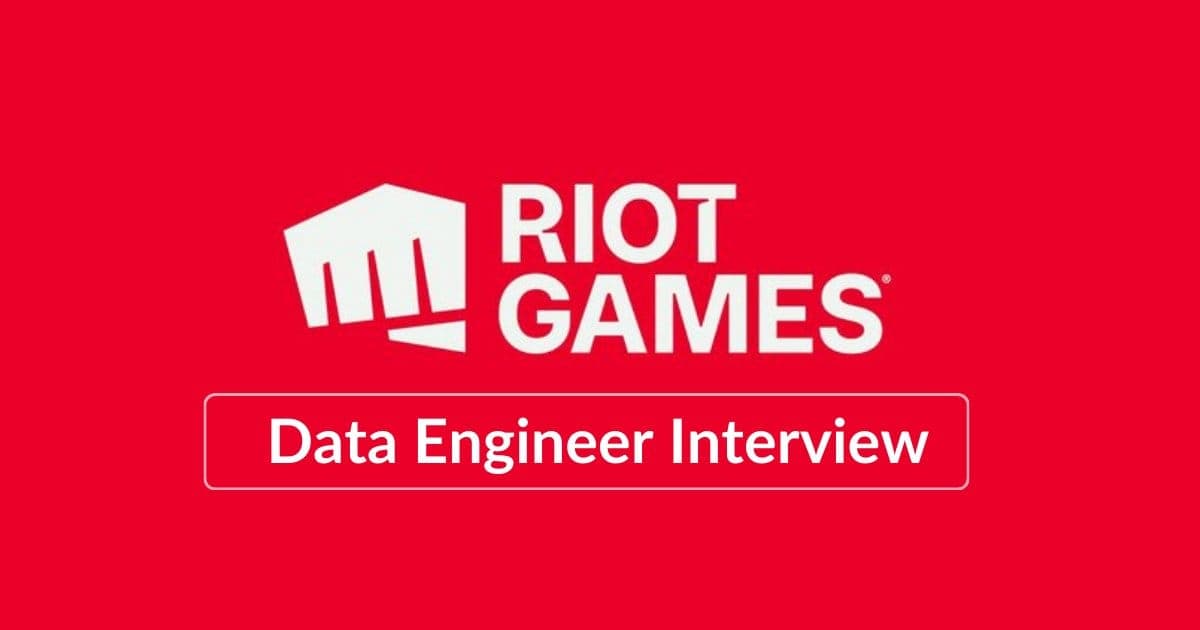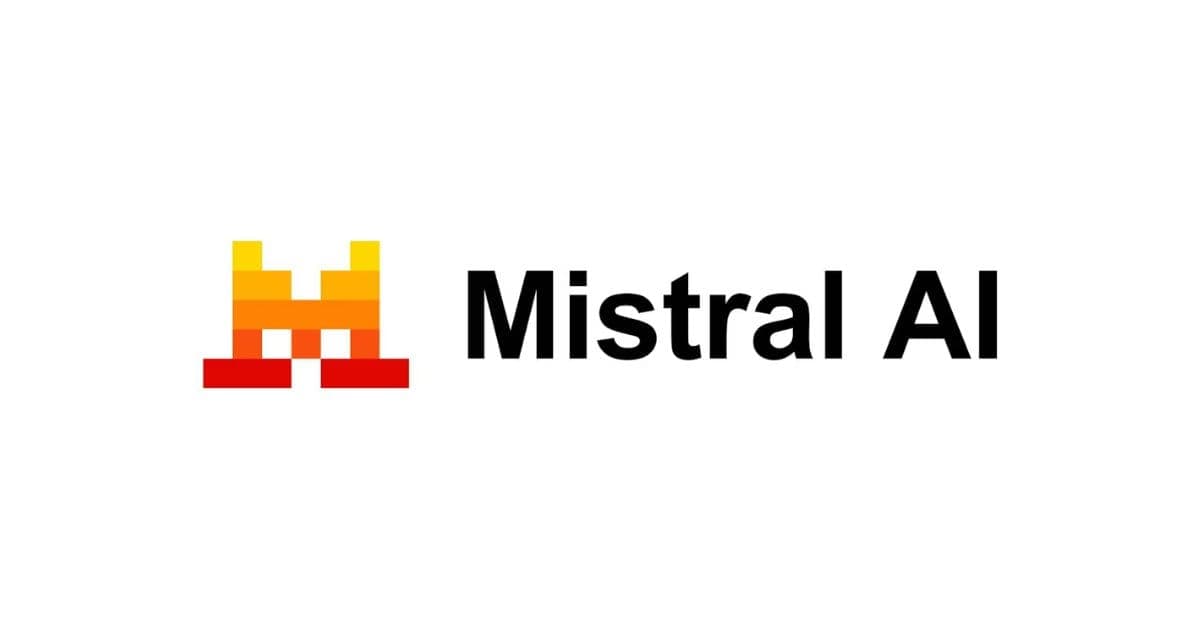Are you gearing up for a Data Engineer interview at Riot Games? This comprehensive guide will navigate you through the intricacies of Riot Games' interview process, highlight essential focus areas, and provide strategies to help you shine in your interview.
Whether you're a seasoned data engineer or looking to advance your career in the gaming industry, understanding Riot Games' unique interviewing style can give you a significant advantage.
We will explore the interview structure, examine the types of questions you can expect, and share valuable tips to help you tackle each stage with confidence.
Let’s jump in and get you prepared for your journey at Riot Games! 👇
1. Riot Games Data Engineer Job
1.1 Role Overview
At Riot Games, Data Engineers are pivotal in enhancing player experiences by delivering data-driven solutions that empower games and delight players. This role requires a combination of deep technical expertise and a passion for solving complex challenges across multiple domains. As a Data Engineer at Riot Games, you’ll work collaboratively to build scalable data models and pipelines that support the strategic goals of the company.
Key Responsibilities:
- Architect and implement central data models that integrate data from various sources into high-context datasets.
- Develop efficient and scalable ETL pipelines in collaboration with data engineering teams.
- Create high-leverage dashboards and bespoke product analyses to answer key business questions.
- Champion data governance best practices through robust documentation and lineage mapping.
- Partner with Data Science teams to produce models consumable by Machine Learning applications.
- Serve as a liaison between data, product, and insights teams to ensure alignment on data needs.
Skills and Qualifications:
- Proficiency in SQL and experience with large-scale data warehousing environments.
- Experience with data modeling for reporting or business use cases.
- Expertise in data visualization tools such as Tableau, Looker, or PowerBI.
- ETL experience with tools like Spark and/or Databricks.
- Strong communication skills to effectively engage with cross-functional teams.
- Passion for producing high-impact data products at scale.
1.2 Compensation and Benefits
Riot Games offers a competitive compensation package for Data Engineers, reflecting its commitment to attracting top talent in the gaming and technology industries. The compensation structure includes a base salary, performance bonuses, and stock options, along with various benefits that promote a healthy work-life balance and professional development.
Example Compensation Breakdown by Level:
| Level Name | Total Compensation | Base Salary | Stock (/yr) | Bonus |
|---|---|---|---|---|
| P1 (Junior Data Engineer) | $165K | $165K | $0 | $0 |
| P2 (Data Engineer) | $170K | $170K | $0 | $0 |
| P3 (Mid-Level Data Engineer) | $218K | $171K | $16.7K | $30K |
| P4 (Senior Data Engineer) | $300K | $218K | $50K | $32K |
| P5 (Principal Data Engineer) | $350K | $250K | $70K | $30K |
Additional Benefits:
- Participation in Riot Games' stock programs, including restricted stock units (RSUs) and the Employee Stock Purchase Plan.
- Comprehensive medical, dental, and vision coverage.
- Generous paid time off and flexible work arrangements.
- Tuition reimbursement for education related to career advancement.
- Access to wellness programs and employee resource groups.
- Discounts on Riot Games products and services.
Tips for Negotiation:
- Research compensation benchmarks for data engineering roles in your area to understand the market range.
- Consider the total compensation package, which includes stock options, bonuses, and benefits alongside the base salary.
- Highlight your unique skills and experiences during negotiations to maximize your offer.
Riot Games' compensation structure is designed to reward innovation, collaboration, and excellence. For more details, visit Riot Games' careers page.
2. Riot Games Data Engineer Interview Process and Timeline
Average Timeline: Approximately 4-6 weeks
2.1 Resume Screen (1-2 Weeks)
The first stage of the Riot Games Data Engineer interview process is a resume review. Recruiters assess your background to ensure it aligns with the job requirements. Given the competitive nature of this step, presenting a strong, tailored resume is crucial.
What Riot Games Looks For:
- Proficiency in SQL, Python, and data pipeline development.
- Experience with large-scale data systems and cloud platforms.
- Projects demonstrating innovation, technical expertise, and collaboration.
- Understanding of game data analytics and player behavior insights.
Tips for Success:
- Highlight experience with data modeling, ETL processes, and real-time data processing.
- Emphasize projects involving machine learning, analytics, or data-driven decision-making.
- Use keywords like "data engineering," "big data," and "cloud infrastructure."
- Tailor your resume to showcase alignment with Riot Games' mission of delivering player-focused experiences.
Consider a resume review by an expert recruiter who works at FAANG to enhance your application.
2.2 Recruiter Phone Screen (20-30 Minutes)
In this initial call, the recruiter reviews your background, skills, and motivation for applying to Riot Games. They will provide an overview of the interview process and discuss your fit for the Data Engineer role.
Example Questions:
- Can you describe a time when you optimized a data pipeline for performance?
- What tools and techniques do you use for data integration and transformation?
- How have you contributed to cross-functional team projects in the past?
Prepare a concise summary of your experience, focusing on key accomplishments and technical impact.
2.3 Technical Screen (45-60 Minutes)
This round evaluates your technical skills and problem-solving abilities. It typically involves coding exercises, data engineering questions, and case-based discussions.
Focus Areas:
- SQL: Write queries involving complex joins, aggregations, and data transformations.
- Data Engineering: Discuss data pipeline architecture, ETL processes, and data warehousing.
- Cloud Platforms: Explain your experience with cloud services like AWS, GCP, or Azure.
- Problem Solving: Analyze scenarios to propose efficient data solutions.
Preparation Tips:
Practice SQL queries and data engineering problems. Consider technical interview coaching by an expert coach who works at FAANG for personalized guidance.
2.4 Onsite Interviews (3-5 Hours)
The onsite interview typically consists of multiple rounds with data engineers, managers, and cross-functional partners. Each round is designed to assess specific competencies.
Key Components:
- Technical Challenges: Solve live exercises that test your ability to design and implement data solutions.
- Real-World Business Problems: Address complex scenarios involving data architecture and analytics.
- Behavioral Interviews: Discuss past projects, teamwork, and adaptability to demonstrate cultural alignment with Riot Games.
Preparation Tips:
- Review core data engineering topics, including data pipeline optimization and cloud infrastructure.
- Research Riot Games' products and services, especially their data-driven initiatives, and think about how data engineering could enhance them.
- Practice structured and clear communication of your solutions, emphasizing technical insights.
For Personalized Guidance:
Consider mock interviews or coaching sessions to simulate the experience and receive tailored feedback. This can help you fine-tune your responses and build confidence.
3. Riot Games Data Engineer Interview
3.1 Data Modeling Questions
Data modeling questions assess your ability to design and structure data systems that support Riot Games' data needs.
Example Questions:
- How would you design a data model to track player statistics across different games?
- What considerations would you take into account when designing a schema for in-game purchases?
- Explain how you would model data for a leaderboard system in a multiplayer game.
- How would you handle data versioning in a rapidly evolving game environment?
- Describe your approach to normalizing a database for a new game feature.
3.2 ETL Pipelines Questions
ETL pipeline questions evaluate your ability to design, implement, and optimize data pipelines for efficient data processing.
Example Questions:
- Describe the ETL process you would use to integrate data from multiple game servers.
- How would you optimize an ETL pipeline to handle peak gaming hours?
- What tools and technologies would you use to build a scalable ETL pipeline for game analytics?
- Explain how you would ensure data quality and consistency in an ETL process.
- How would you handle schema changes in a live ETL pipeline?
For more insights on building efficient ETL pipelines, check out the Case in Point course.
3.3 SQL Questions
SQL questions assess your ability to manipulate and analyze data using complex queries. Below are example tables Riot Games might use during the SQL round of the interview:
Players Table:
| PlayerID | PlayerName | JoinDate | Region |
|---|---|---|---|
| 1 | Summoner1 | 2023-01-01 | NA |
| 2 | Summoner2 | 2023-02-01 | EU |
| 3 | Summoner3 | 2023-03-01 | ASIA |
Matches Table:
| MatchID | PlayerID | GameDate | Score | Outcome |
|---|---|---|---|---|
| 101 | 1 | 2023-04-01 | 1500 | Win |
| 102 | 2 | 2023-04-02 | 1200 | Loss |
| 103 | 3 | 2023-04-03 | 1800 | Win |
Example Questions:
- Top Scorers: Write a query to find the top 3 players with the highest average score.
- Win Rate: Write a query to calculate the win rate for each player.
- Recent Matches: Write a query to list all matches played in the last 30 days.
- Regional Performance: Write a query to find the average score of players by region.
- Player Activity: Write a query to determine the number of matches played by each player.
You can practice medium to hard-level SQL questions on DataInterview SQL pad.
3.4 Cloud Infrastructure Questions
Cloud infrastructure questions assess your ability to design and manage scalable, reliable, and secure cloud-based systems.
Example Questions:
- How would you design a cloud architecture to support real-time game analytics?
- What strategies would you use to ensure data security in a cloud environment?
- Explain how you would implement auto-scaling for a game server hosted on the cloud.
- What are the benefits and challenges of using a multi-cloud strategy for game data?
- How would you monitor and optimize cloud resource usage for cost efficiency?
4. Preparation Tips for the Riot Games Data Engineer Interview
4.1 Understand Riot Games' Business Model and Products
To excel in open-ended case studies during the Riot Games Data Engineer interview, it's crucial to understand their business model and product offerings. Riot Games is renowned for its player-focused approach, creating immersive experiences through games like League of Legends, Valorant, and Teamfight Tactics.
Key Areas to Understand:
- Revenue Streams: How Riot Games generates income through in-game purchases, esports, and merchandise.
- Player Experience: The role of data engineering in enhancing gameplay, matchmaking, and player engagement.
- Data-Driven Initiatives: How Riot Games leverages data to drive innovation and improve game performance.
Understanding these aspects will provide context for tackling business case questions, such as optimizing data pipelines for player analytics or proposing data-driven strategies to enhance player retention.
4.2 Strengthen Your SQL and Data Engineering Skills
Riot Games places a strong emphasis on technical proficiency, making SQL and data engineering expertise essential for success in their interviews.
Key Focus Areas:
- SQL Skills:
- Master complex joins, aggregations, and data transformations.
- Practice writing queries for real-world scenarios, such as player statistics and game analytics.
- Data Engineering Skills:
- Understand ETL processes and data pipeline optimization.
- Familiarize yourself with cloud platforms like AWS or GCP.
Consider enrolling in a SQL course to practice interactive exercises with real-world data from companies like Google and Amazon.
4.3 Practice Real-World Data Modeling and ETL Scenarios
Data modeling and ETL pipeline design are core components of the Data Engineer role at Riot Games. Practicing these skills will prepare you for technical discussions and problem-solving exercises.
Preparation Tips:
- Design data models for tracking player statistics and in-game purchases.
- Develop ETL processes to integrate data from multiple game servers.
- Optimize data pipelines to handle peak gaming hours and ensure data quality.
For personalized guidance, consider coaching services to receive expert feedback and refine your approach.
4.4 Align with Riot Games' Culture and Values
Riot Games values innovation, collaboration, and a player-first mindset. Demonstrating alignment with these values is key to showcasing your cultural fit during interviews.
Core Values:
- Commitment to player-focused experiences and data-driven decision-making.
- Collaboration across diverse teams and disciplines.
- Passion for gaming and continuous improvement.
Showcase Your Fit:
Reflect on your experiences where you:
- Used data to enhance player experiences or game features.
- Collaborated effectively with cross-functional teams to achieve shared goals.
- Innovated on existing processes or products to drive impact.
4.5 Practice with a Peer or Interview Coach
Simulating the interview experience can significantly improve your confidence and readiness. Mock interviews with a peer or coach can help you refine your answers and receive constructive feedback.
Tips:
- Practice structuring your answers for technical and behavioral questions.
- Review common data engineering scenarios to align your responses with Riot Games' needs.
- Engage with professional coaching services for tailored, in-depth guidance and feedback.
Consider engaging with coaching platforms like DataInterview.com for tailored preparation. Mock interviews will help you build communication skills, anticipate potential challenges, and feel confident during Riot Games' interview process.
5. FAQ
- What is the typical interview process for a Data Engineer at Riot Games?
The interview process generally includes a resume screen, a recruiter phone screen, a technical screen, and onsite interviews. The entire process typically spans 4-6 weeks. - What skills are essential for a Data Engineer role at Riot Games?
Key skills include proficiency in SQL, experience with ETL processes, data modeling, and familiarity with cloud platforms like AWS or GCP. Additionally, expertise in data visualization tools such as Tableau or Looker is beneficial. - How can I prepare for the technical interviews?
Focus on practicing SQL queries, designing data models, and optimizing ETL pipelines. Familiarize yourself with real-world data scenarios related to gaming analytics and player behavior. - What should I highlight in my resume for Riot Games?
Emphasize your experience with large-scale data systems, data pipeline development, and any projects that demonstrate your ability to enhance player experiences through data-driven solutions. - How does Riot Games evaluate candidates during interviews?
Candidates are assessed on their technical skills, problem-solving abilities, and cultural fit. The interviewers look for a passion for gaming and a commitment to delivering player-focused experiences. - What is Riot Games' mission?
Riot Games' mission is "to be the most player-focused company in the world," which emphasizes creating immersive gaming experiences and leveraging data to enhance player engagement. - What are the compensation levels for Data Engineers at Riot Games?
Compensation for Data Engineers ranges from approximately $165K for junior roles to $350K for principal positions, including base salary, bonuses, and stock options. - What should I know about Riot Games' business model for the interview?
Understanding Riot Games' focus on player engagement, in-game purchases, and esports will be beneficial. Familiarity with how data engineering supports these areas can help you answer business case questions effectively. - What are some key metrics Riot Games tracks for success?
Key metrics include player retention rates, engagement levels, in-game purchase behavior, and overall game performance metrics that inform data-driven decisions. - How can I align my responses with Riot Games' mission and values?
Highlight experiences that demonstrate your commitment to player-focused solutions, collaboration with cross-functional teams, and innovative approaches to data challenges in gaming.




